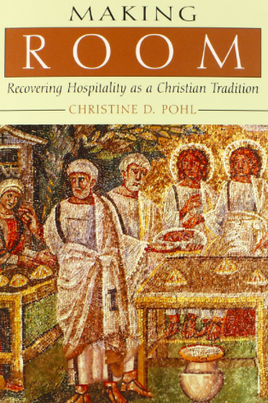 So many values and virtues, which came from the appearance and presence of Christianity in the world 2,000 plus years ago, in our culture, exist today as noble and ideals amongst society, so much so that the intent of Jesus’ Blesseds are now tempered, eased, toned down, dulled, softened. Their bite taken out. Their edge taken off—so that their radical, self-righteous slaying, Christendom destroying, idol bashing, social leveling, culture reversing power is missed and dismissed by much of the church and ignored as simplistic and assumed platitudes by modern crowds. The gospel is actually missed.
We exist at a time when the Cheshire cat smile of these Beatitudes exist (in vague social and cultural forms and weak values and virtues, and, even, as political correctness); but the cat (i.e., the intent Jesus had in the first place) is all gone. These verses, Matthew 5:3-12 (above), were the most oft quoted, referred to, and referenced New Testament texts in the first 150 years of the church. They were the call (invitation) to the faith, the test of faithfulness, and the bane and annoyance of existing powers. You want to know how Christianity spread so rapidly and the church increased beyond imagination in the first 150 years--they actually believed the Beatitudes. And, did them. The early believers, mostly poor and lacking resources, small and powerless and often hidden, lived the life the Beatitudes described, endured attacks against the message they implied, and, as a result, out-lived an empire. Our problem now, is we like the smile but care not the cat has disappeared. We've turned much of the Beatitudes 180° degrees from their original intent that they no longer slay us nor confront the culture (or the church) with all its social hierarchy and status, its vertical world. The Beatitudes are interpreted and used in ways so that the rich, famous, elite, the educated, the privileged and advantaged are comforted to think that they are, as well, “poor in spirit," so they get to keep their privilege and advantage (as long as they recognize their "spiritual poverty"). The privileged get to continue in the culture and social structures that gave them their advantage. Heck, theirs is the kingdom! Now and in the future. Who wouldn't want that deal? The Beatitudes are not a platform for your privilege, fame, celebrity, or power . . . they are to disturb everything that made you, that enabled you to have social status, to destroy every advantage you have had to enjoy the privileges you have . . . the Beatitudes level, they turn (for those who believe the kingdom of heaven has come) the verticalization of this social and cultural world (with all its advantages) and horizontalizes everything. If the Beatitudes don't do this to you, then you are seeing just the Cheshire cat smile. The cat is gone.  How do the rich, affluent, powerful, and wealthy break and destroy the idols that blind them and make them deaf? They accept the invitation to a kingdom, the kingdom of heaven, where the poor in spirit (the actual poor among them, the outcasts, marginal, uneducated, the sick, infirmed, and afflicted, and mentally unstable; cf. Matthew 4:24-5:1); where those who mourn for lack of recourses; and, where the meek, that is the powerless, have the kingdom, will be comforted, and shall inherit the earth. This is the kingdom to which the affluent, wealthy, and the advantaged, that is the powerful and resource-rich are invited. Of course, these lines in the list of Beatitudes are for all who seek first God’s kingdom and his righteousness. I am here focused on the powerful and resource-rich who hear this gracious invitation to the kingdom of Heaven. This is the kingdom to which the powerful and resource-rich are invited, a kingdom where they thirst and hunger for justice [yes, that’s exactly how I believe Jesus meant it]; where they will extend mercy because it is the merciful that will receive mercy; where the clean in heart make room for the unclean, because they see God; where they will be peace-makers, because they will be called Sons of God. This is an impossible invitation: for those who have been made blind and deaf and immovable because of their idols, these need the gospel, the power of God unto salvation. This is why Jesus died on that cross. This is the way in which God changed the world—really, the way in which he brought into existence, the reality of his recreated world, his kingdom of heaven. Yet, still, these words of the Beatitude are an invitation, waiting for you, through the gospel of Jesus Christ, to accept. In the end, both at our death and at the end of time, this is the kingdom that matters, the only kingdom that will remain. It is the kingdom of heaven to whom God, the Most High, will give to his saints (Daniel 7:18). This is why it makes sense that “the poor in spirit” are blessed, “because theirs is this kingdom.”
0 Comments
 I read books that challenge me, push my convictions, and expose my idolatries. No book, recently, has done this as has Christine Pohl’s Making Room: Recovering Hospitality as a Christian Tradition as I digested page after page. As many who have the patience to read my posts and blogs, I have been rethinking church and its relationship to the poor for some time now. It’s has gotten somewhat more personal as I have been challenged to reevaluate the concept of Christian “hospitality.” Pohl reminds me that biblical hospitality isn’t entertaining friends and family, but the household extending relationships and meeting the needs of the poor and marginal, nearby and traveling through. Typically, most in the church seem to understand hospitality (or the “gift” of hospitality) to be the entertaining or hosting of those we already have some form of relationship (“established bonds”) or shared social status and “significance common ground.” Here, “[h]ospitality builds and reinforces relationships among family, friends, and acquaintances” (13). This kind of hospitality reinforces the shared social status among host and guests, wherein the guests give or affirm something by their presence to the host. Frankly put, this “kind” of hospitality is simply entertaining of guests who affirm or build the host’s social or ecclesiastical status. This is not biblical hospitality. There is commonality, that is the liminal space is shared by hosts and guests before, during, and after the act of hospitality. However, biblical hospitality is more closely related to offering space, comfort, and resources to the stranger, the poor, the marginalized—someone outside or estranged from one’s social status, whereby nothing is gained or affirmed by the hosts. This kind of hospitality, framed by the nature of the gospel itself, is for those disconnected from basic relationships and resources. As Pohl reminds, this “hospitality is central to the meaning of the gospel” (8). Thus, in a real sense,“[h]ospitality is the lens through which we can read and understand much of the gospel, and a practice by which we can welcome Jesus himself” (8). The act of hospitality is a concrete display of the gospel. Prior to hospitality, the host and guests might very well be living out a world that affirms verticality; yet the household becomes a gospel-liminal space that affirms horizontality. This reality—where the gospel is displayed, that is where a leveling of human relationships takes place amid the basic human entity, the household—is an expression of God’s kingdom. Granted biblical hospitality isn’t a mere “how to” for the Christian faith nor should be considered lightly. Yet, I cannot rethink church without considering the Christian tradition of biblical hospitality. It is stretching, convicting, and stressing me to think more deeply. Here is a series of quotes from Making Room that confront me on the issue of being Christian, having resources amid the scarcity of many, and the concept and practice of hospitality. “These hospitality communities embody a decidedly different set of values; their view of possessions and attitudes toward position and work differ from those of the larger culture. They explicitly distance themselves from contemporary emphases on efficiency, measurable results, and bureaucratic organization. Their lives together are intentionally less individualistic, materialistic, and task-driven than most in our society. In allying themselves with needy strangers, they come face-to-face with the limits of a ‘problem-solving’ or a ‘success’ orientation. In situations of severe disability, terminal illness, or overwhelming need, the problem cannot necessarily be ‘solved.’ But practitioners understand the crucial ministry of presence: it may not fix a problem but it solves relationships which open up a new kind of healing and hope” (112). “Recognizing our status as aliens in the world is important for attitudes toward resources and property. Although for most of church history private property was taken for granted, its use among Christians was sometimes moderated by the teaching that everything beyond necessity belonged to the poor. Most of the normative discussions of hospitality assumed that God had loaned property and resources to hosts so they could pass them on to those in need” (114). “In the second-century writing of Hermas we can see an important connection between alien residence and the use of resources. The Similitudes began with the claim that servants of God are living in a ‘strange country,’ far from their true home of heaven. Given their alien status, it makes little sense for believers to collect possessions, fields, or dwellings. Christians live under another law; whatever they have beyond what is sufficient for their needs is for widows, orphans, and other afflicted persons. God gives more than sufficiency for that purpose, not for making believers comfortable and vulnerable to the enticements of a strange land (Sim. 1:1–11)” (115). “If Christians live ‘in a strange land as though in [their] home country,’ they build ‘extraveagent mansions,’ and indulge in ‘countless other luxuries,’ wasting their substance on ‘inanities’ [a nonsensical action, silliness]. Because, when forced to leave the land of their sojourn they will be unable to take their possessions and buildings with them, Christians should instead use their wealth to benefit those in need” (115). Seems that much of our "church" experience affirms our cultural's values regarding social status, continues the horizontal nature of social status quo, and displays the divisions fostered already in society. The way we do church isn't neutral to the issues of poverty, racism, and wealth. Biblical Christian hospitality reverses all of this and helps us to question what we truly believe as Christians concerning our "landed" status as aliens of a different kingdom.
|
AuthorChip M. Anderson, advocate for biblical social action; pastor of an urban church plant in the Hill neighborhood of New Haven, CT; husband, father, author, former Greek & NT professor; and, 19 years involved with social action. Archives
February 2024
Categories
All
|
Pages |
More Pages |
|
 RSS Feed
RSS Feed